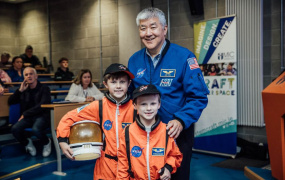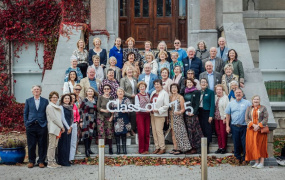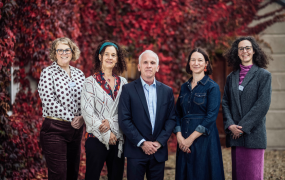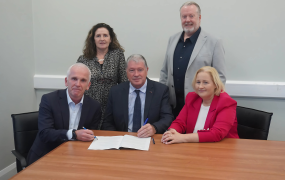Creating Podcasts to Deepen Engagement with Global Citizenship Education
Podcasts as a Student Engagement Tool
| Lecturer - Dr Brighid Golden |
|---|
| Discipline - Global Citizenship Education |
| Subject - Global Citizenship Education |
| Level - Undergraduate |
| Class Size - 18 |
| Mode of Delivery - In-person |
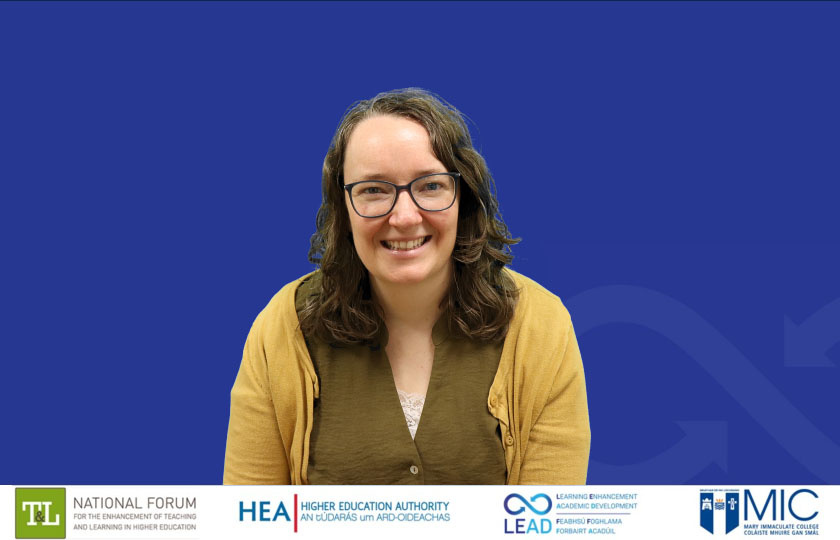
In this case study, Dr Brighid Golden describes the approach she took to developing a podcast series called Curious and Critical GCE, which explores approaches to global citizenship education (GCE) in order to prompt discussion and deepen engagement with GCE with students studying to become primary school teachers. The podcast series was developed as a companion resource to an edited book Curious Teachers, Critical Classrooms published in December 2023. She has published a 12-part podcast series which was released on Spotify on a weekly basis throughout a semester in AY 2023/24. In each episode, she interviews different educators about a specific aspect of GCE and their personal approach. The guests include authors from the companion book as well as other educators from the sector in Ireland. There are also three episodes with recent graduates from the B Ed programme, recorded just as they finished their degrees in MIC.
The development of this podcast series was supported by the DICE Project, a national strategic educational initiative focused on embedding GCE into initial teacher education at primary level in Ireland.
Rationale
I was conscious that many students commute and do not have time to engage with readings, I developed the podcast series to accompany the book and provide students with an alternative and more accessible way of engaging with the issues I teach about. Furthermore, the available materials in relation to GCE are often heavy, inaccessible, or not applicable to teachers. This podcast series aims to make research and knowledge about GCE more accessible and engaging for busy student teachers.
Description of the Teaching and Learning Approach
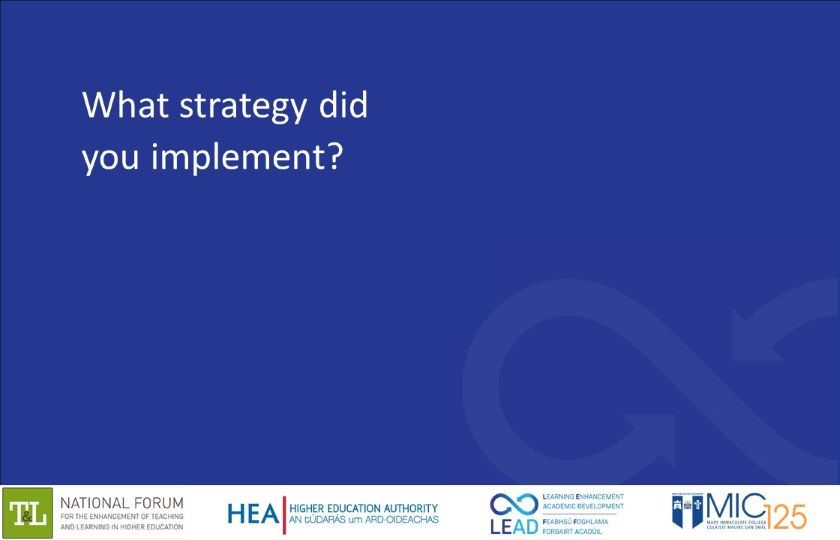
This semester I used the podcast series with my elective group (B Ed 3), asking them to listen to the episodes each week and then using them to inform discussion in the classroom. For this module, students are usually given an assigned reading to engage with each week. However, this year's students were given the choice to engage in a reading or to listen to a podcast episode on the same topic most weeks. In previous years I have found that some students, particularly those who commute long distances to college, or those who work during term time, struggled to complete all the required reading. By providing podcast episodes as an alternative option, all students were able to engage with research and learning beyond the classroom space. The podcast episodes or readings were then used to inform discussion in the classroom and fed into their assessment as potential references to use. Indeed, many students used podcast episodes as an academic reference within their assignments to support their arguments about GCE.
Steps followed to create the podcast series
- Plan out the series – choosing guests and themes with applicability to my students and which together would form a broad picture of GCE.
- Invite guests – they were all people I knew through my professional role and experience within the sector in Ireland.
- Plan interview format. Decisions included: - How long episodes would be: I went with 20-30 minutes to ensure students would be likely to remain engaged and be able to fit in episodes around their busy lives. - Interview format plan: I went with conversational, informal, introductory focus, not overly academic – this was to ensure the content would be accessible to all while still sharing the important points. - Choose questions: I chose two opening and one closing question which I asked all guests for consistency across the series, and filled in the remaining questions (up to ten) with those related to the person or topic of focus.
- Recording – I gave participants the choice to come to MIC and record in the Wired FM studios, or I travelled to them. When I travelled I used a small, hand-held Zoom mic and headphones, borrowed from Wired FM. It was important when travelling to ensure recording took place in a quiet room with lots of sound absorbing materials like books, this was usually people’s offices.
- Recording intros and outros – I wrote and recorded an intro for each episode and an outro for the whole series in the Wired FM studio, and I got an original piece of music donated for the purposes of the show.
- Editing – There were only a couple of episodes that needed editing and most interviews worked well in one continuous recording. A colleague in Wired FM did the editing for me, adding the intros, music, and outro, and cutting where necessary.
- Sharing – I decided to go with Spotify to share the podcast. I set up a profile on creators.spotify.com and I uploaded episodes and details to here each week.
What Worked and Why?
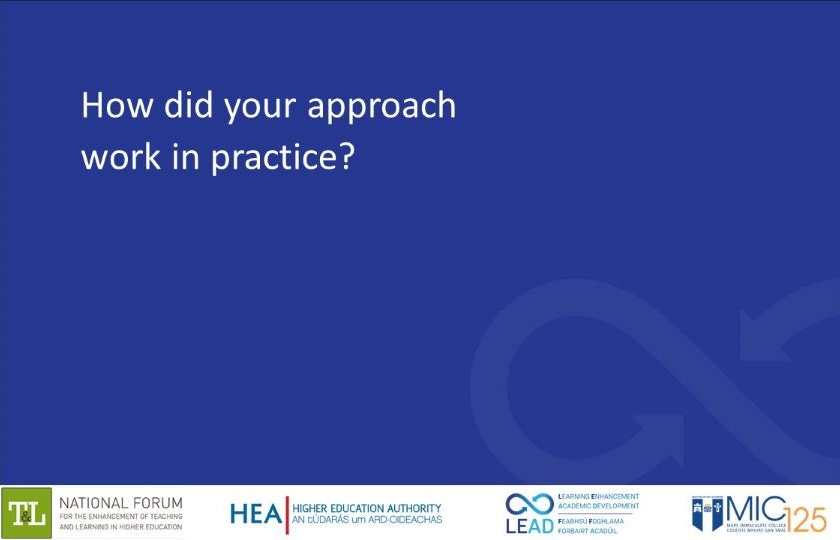
I developed the podcast episodes with students in mind, instead of using existing podcast episodes from other sources, which are not always fully relevant to student teachers, I was able to tailor the questions I asked guests on each episode to ensure the content would be relevant to my students. I used broad introductory questions which would be useful to students just learning about GCE and the topics being covered for the first time. The conversation style of the podcast interviews also worked well to make the complex topics within global citizenship education more accessible for students being introduced to the topics for the first time.
In terms of working with the guests on the podcast series, I was advised by Wired FM not to share questions beforehand and this worked really well. As I wanted a conversational, informal style, I wanted to ensure that guests answers were organic and not practiced. While some were initially nervous, all guests were ultimately happy with this format.
Any problems or issues that arose from this approach?
Producing a podcast series was a learning curve. As this was my first time, I choose to learn new skills one at a time. For this first series I learned about interviewing, recording, uploading and sharing episodes. I learned about interviewing and recording from Wired FM and all their radio show experience. I taught myself about uploading and sharing episodes through Spotify by reading advice online. I needed support to edit the episodes from Wired FM on campus, they also supported me by allowing me to use the recording studio for episodes recorded on campus, and to borrow equipment for episodes recorded off campus. I plan to learn about audio file editing for myself for the next series.
Additionally, I learned that uploading and sharing one episode a week was too heavy a schedule to maintain. Although I now have a very useful bank of episodes which can be accessed and used at any time, in future series I will be producing two a month instead.
Tips for Implementation
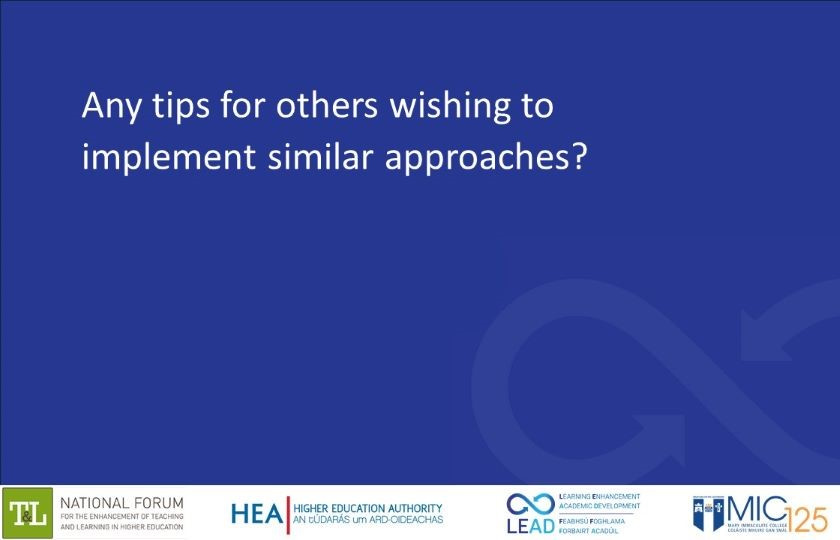
It made a significant difference to me to have pre-recorded all episodes prior to the start of semester. There was still work to be done on naming episodes, writing descriptions, uploading and sharing them, but the majority of the work was done.
Additionally, choosing topics, and guests, who I knew would be of relevance and interest to the student groups I work with was very important. As a series, the podcast episodes will continue to be available on Spotify. Consequently, I planned for episodes with a wide applicability to multiple modules, enabling me to use the episodes as a resource for multiple groups without having to remake them.
Some of the episodes I published this semester were not relevant for the group I was working with this semester, and so they did not listen to all episodes. I had planned for a series that would be relevant to multiple groups that I work with across the academic year, aiming to build up a library of episodes which will be a useful resource for multiple groups for years to come. This means that some of the episodes this semester were not relevant for my elective group. In future I plan to use this series as a resource for all students studying GCE as part of their degree, not just those engaging with electives.
Additionally, I have plans to produce at least two future series. Series two will focus on GCE within the formal education sector in Ireland and in series three I will interview those working in the non-formal education sector in Ireland. These two series will build a library of episodes which will help students build a picture of what GCE looks like in Ireland and where they can go to link in with organisations for support, or where they can look to for more information or to get involved in projects or campaigns.
The development of this podcast series was supported by the DICE Project, a national strategic educational initiative focused on embedding GCE into initial teacher education at primary level in Ireland. However, the associated costs were very low due to the support offered by Wired FM and only needed to cover my travel when interviewing guests off campus.
The podcast series is available both on Spotify and on Podcasts at Mary Immaculate College.
- Podcasts as a Student Engagement Tool



